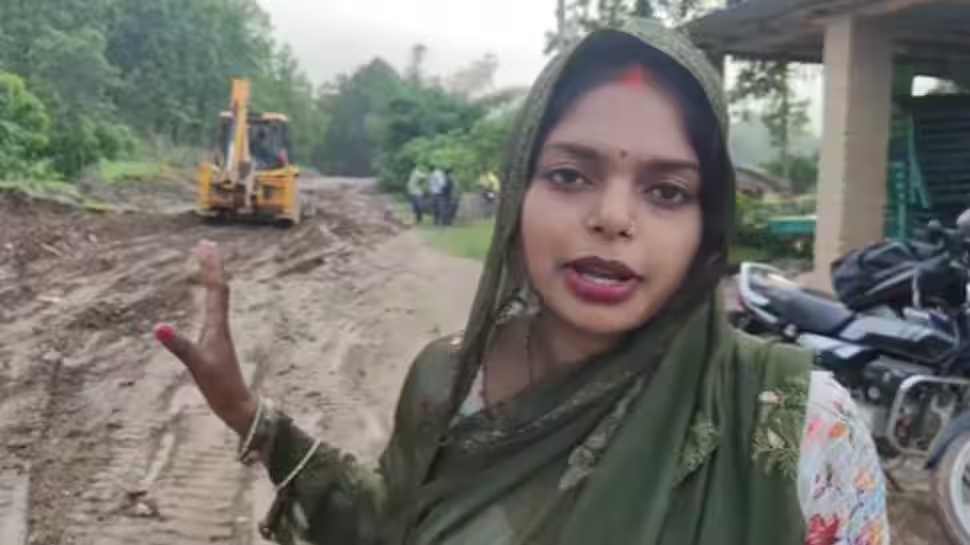Leela Sahu, a 22-year-old social media influencer from Khuddi Khurd village in Madhya Pradesh’s Sidhi district, launched an online campaign to draw attention to the dangerous condition of the road leading to her village. In the final stages of her pregnancy, she feared the muddy and impassable stretch could cost her and other pregnant women their lives.
With over 23 lakh YouTube followers, her videos gained wide traction, pushing the government to finally respond. Her campaign led to the start of road construction this week—providing a glimmer of hope for safer travel in the region.
Mocked by MP, Applauded by the Public
When Sahu first raised the issue on her channel, she faced sarcastic pushback from the local BJP MP, Dr. Rajesh Mishra, who responded dismissively, saying, “Unko uthva lenge” (We will get her picked up). His remarks, seen as callous and insensitive, triggered a wave of online backlash and public criticism.
Despite the MP’s comments, the issue was soon taken seriously. Leela confirmed on Monday that road levelling had begun in her village—50 km from Sidhi’s district headquarters.
A Road for Many, Not Just One
Leela shared that she is not the only woman in distress—at least six women in her village are also currently pregnant. Her relief was clear as she said, “It is such a big relief to see that work for the construction of the road has started. I am in my ninth month of pregnancy and now hopeful that an ambulance can reach me for delivery.”
The road, she noted, is being constructed with funds from the local MLA’s constituency allocation. The PM Gram Sadak Yojana (PMGSY) confirmed that their department had no involvement in this specific project.
From Village Life to Local Champion
Leela Sahu began her social media journey in 2022, focusing on traditional village life, culture, and rural routines. However, by 2024, she pivoted to more civic-focused content, shedding light on the struggles faced by ordinary people in remote regions.
Her shift from lifestyle content to activism has not only brought change to her own village but also serves as a blueprint for digital grassroots movements in India—especially for young women with limited access to political power.



